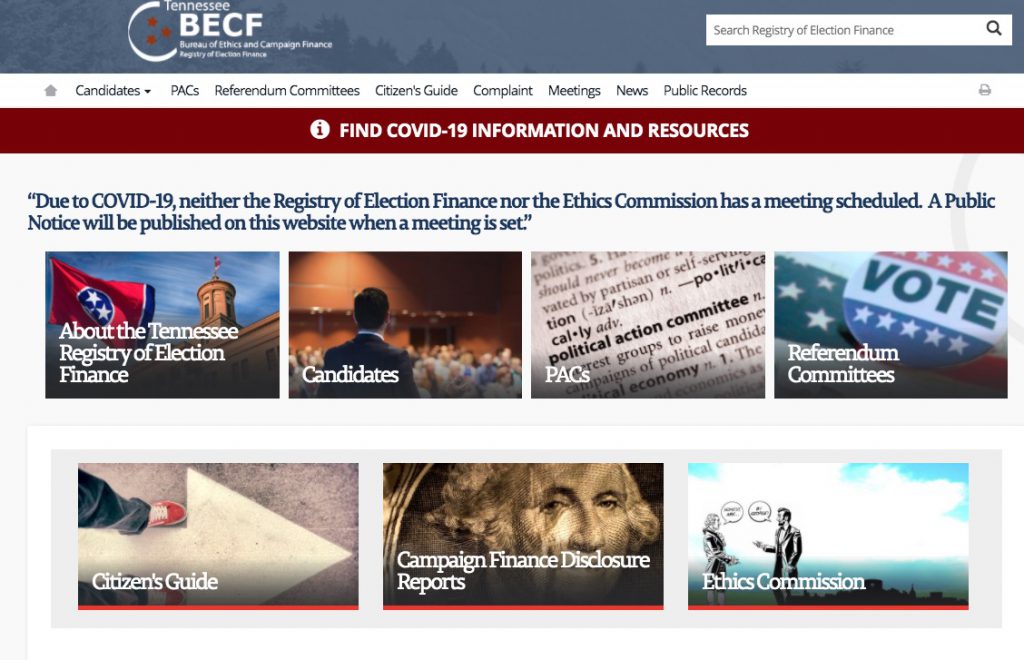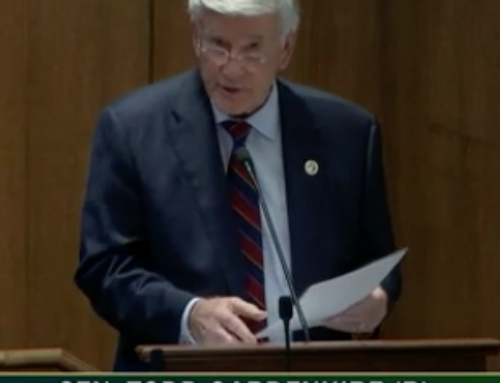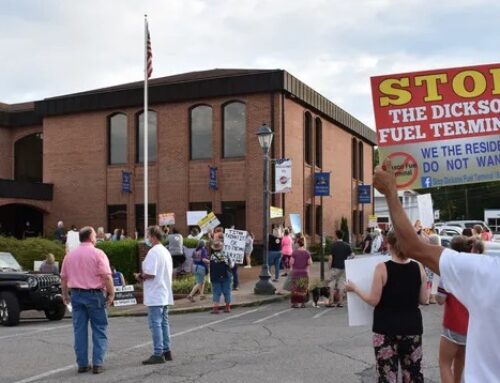In an effort to uphold the Open Meetings Act, the Tennessee Coalition for Open Government today joined news media organizations, journalists and press associations in filing an open meetings lawsuit against the Tennessee Registry of Election Finance.
(Read: Media groups sue campaign finance board over email vote, contend violation of open meetings law – By Joel Ebert, The Tennessean, Tennessee media groups, watchdog sue over vote by email – By Travis Loller, AP, Reporters Committee group files lawsuit over Towns decision – By Sam Stockard, The Daily Memphian.)
On the evening of April 1, the election finance board took an email vote in secret to reduce by $44,100 the fines owed by longtime lawmaker state Rep. Joe Towns, D-Memphis.
Towns had failed over two years to file campaign financial disclosure reports as required by law, and accumulated $65,000 in civil penalties levied by the board.

The email vote was 4-2, according to a report by Bill Young, executive director of the Bureau of Ethics and Campaign Finance. It was done on the eve of a noon deadline the next day for Towns to file for re-election. He would not have been eligible to be on the ballot if he had outstanding penalties, per state law.
Young has said he followed the process that the Attorney General’s office recommended, and that he talked with each board member individually, asking them to vote on a proposed settlement of the fines, which the AG had negotiated with Towns. Young said during this process, he was acting as the board’s attorney, not as executive director, and because of this the actual emails that he sent to board members about the proposed settlement and asking for a vote, and the emails containing each board member’s votes or comments back to him are confidential under attorney-client privilege and not subject to disclosure under the Tennessee Public Records Act. (TCOG asked for them.)
Allowing votes outside a public meeting would roll back transparency in Tennessee
TCOG thinks the email vote violates the Tennessee Open Meetings Act.
What’s more, we think that an interpretation of the Open Meetings Act by state officials saying otherwise is a grave danger to open government everywhere in the state.
If a state board is authorized or advised by the Tennessee Attorney General’s office to take an email vote and to make decisions without public notice, with no public meeting, with no minutes, how long will it be before this method spreads to all state boards and even beyond to all local governing bodies who might find such a method convenient to their purposes of the moment?
News reporters often attend the election finance board meetings and report on what happened there. During these meetings, the election finance board often votes to reduce penalties, or not assess them, based on the explanations and actions by the offender. They have also voted on settlement offers. The board’s decisions on penalties are recorded in minutes and include who made the motion and who seconded it. The minutes often include a report on the discussion that took place that helps explain why board members took such actions.
There is no reason for a reduction of civil penalties against a lawmaker who failed to file campaign disclosure reports for two years to be done in secret. And there is every reason for such board action to be done in public, as we think is quite certainly required by law.
Secret vote does not instill public confidence in election finance laws

Transparency is at the heart of the campaign finance disclosure laws, which the Tennessee Registry of Election Finance is charged with enforcing.
Backroom dealings and secret voting by the board do not instill public confidence or public trust in the process or, in this case, in the integrity of our election system to which this action was connected.
Paul McAdoo, an attorney with the Reporters Committee for Freedom of the Press, is representing the journalists and organizations in the lawsuit. McAdoo is part of the RCFP’s Local Legal Initiative that was established to provide news organizations and journalists in five states with pro bono legal support.
The lawsuit coalition includes The Associated Press, Kimberlee Kruesi, Chattanooga Publishing Company, Gannett GP Media, Inc., Michael Anastasi, Gould Enterprises, Inc., Memphis Fourth Estate, Inc., Meredith Corporation, Jeremy Finley, Scripps Media, Inc., Ben Hall, Tegna, Inc., Jeremy Campbell, Lisa Lovell, Tennessee Association of Broadcasters, Tennessee Coalition for Open Government and Tennessee Press Association.




